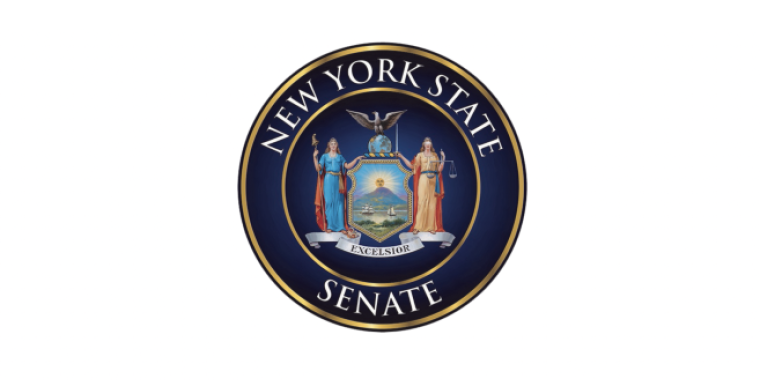
Senator Krueger Joins Senator Schneiderman, District Attorney Vance and Assemblymember Kellner in Introducing Bill to Fight Public Corruption
Liz Krueger
May 4, 2010
-
ISSUE:
- Ethics
For Immediate Release | May 4, 2010
Katie Kincaid | kincaid.nysenate@gmail.com | 646-784-0485
(New York, NY) – Today, Senator Liz Krueger joined State Senator Eric Schneiderman and Assembly Member Micah Kellner in announcing the introduction of the Public Corruption Prevention and Enforcement Act. This legislation, cosponsored by Senator Krueger, will prosecute and prevent public corruption in New York State. The wide-ranging legislation closes loopholes in current State Law which prevent the prosecution of corrupt schemes, adds tougher rules for member items, implements stronger campaign finance and financial disclosure measures, and fixes a perceived loophole in the Election Law.
“The public has a right to expect higher standards from their elected officials,” Senator Krueger said. “This bill will make clear that use of one's office for personal benefit is more than a betrayal of the public trust -- it is also a crime.”
The Public Corruption Prevention and Enforcement Act would take action in several areas. The bill:
• Enacts duty of faithful public service: public servants hold a public trust and have a duty to act in a way which is faithful to the best interests of the State or municipality, and to their constituents. This bill creates a defined duty for public servants to do their jobs free of corrupt arrangements, in both the Penal Law and the Public Officers Law. The duty applies to public servants at all levels of government within the State: elected officials, employees and appointees.
• Punishes corrupt schemes to defraud the government: the bill expands the existing crime of defrauding the government by creating the crimes of scheme to defraud the government in the first and second degrees. Currently, the law is limited to schemes to defraud government agencies of property, services or resources. This bill would include corrupt schemes involving public servants and others who seek to corrupt the operation of government in any way. Violation is punishable as either a class D or E felony, depending on the nature of the offense.
• Reforms criminal bribery statutes: the bill amends bribery statutes involving public servants in the Penal Law to ensure that bribery offers are punished as seriously as completed bribes. The bill amends bribery in the first, second and third degrees to make public bribery statutes consistent with commercial bribery, sports bribery, and labor bribery statutes in the Penal Law.
• Reforms the member item process: the bill creates new standards and prohibitions for community projects grants, which are commonly known as “member items.” Under the standards for the community project funds, grantees are barred from receiving grants if the grantee: was barred by a government agency in any jurisdiction within the last five years; failed to file a tax return or to pay taxes in the last five years; or used a third-party or agent to secure the grant. If the standards are violated, the Attorney General may recover the grant through a lawsuit. In addition, the bill creates prohibitions for the sponsors of grants – members of the Legislature or the Governor – from requesting grants if the sponsor or a relative of the sponsor is a director, officer or trustee of the grantee. Sponsors and their relatives are also barred from having a financial interest in or receiving a benefit from a grant. The Attorney General and any District Attorney have concurrent authority to investigate and prosecute criminal violations of the law.
• Enhances financial disclosure for State officials: the bill increases disclosure in both the Public Officers and the Election Law to prevent even the possibility of corrupt activities. The categories of value or amounts on the annual statements of financial disclosure filed in all three branches of State government would be disclosed to the public upon release, whereas current provisions in law and rules allow this information to be redacted. This change will allow the public to monitor the sources and values of outside income earned by our elected officials. A question is also added to the annual statement of financial disclosure requiring the reporting individual to disclose relationships with non-profit organizations.
• Strengthens campaign finance rules: the legislation requires candidates for public office and their spouse or domestic partner to report gifts or loans for the 12 months preceding a candidate designation, to prevent loans intended for campaign use to be disguised as personal gifts. This fixes a perceived loophole which recently led to the acquittal after trial of a public official in Manhattan.
“For too long New Yorkers have put up with abhorrent behavior from some public officials who have chosen to abuse their powers and privileges,” Senator Krueger said. “With this legislation we are stating here and now that such despicable actions will never be tolerated again.”



